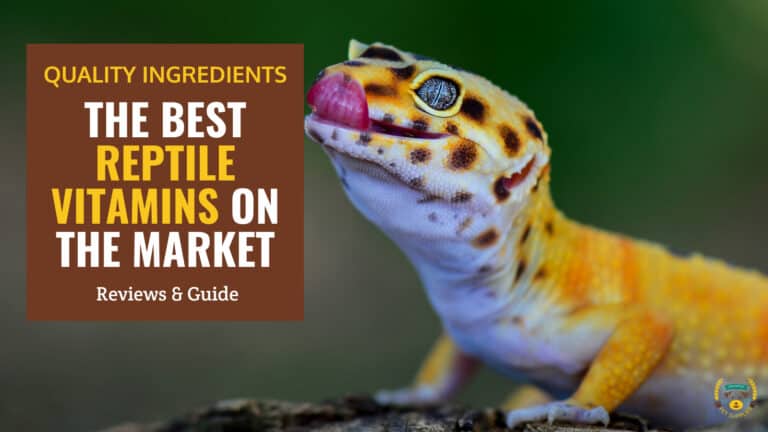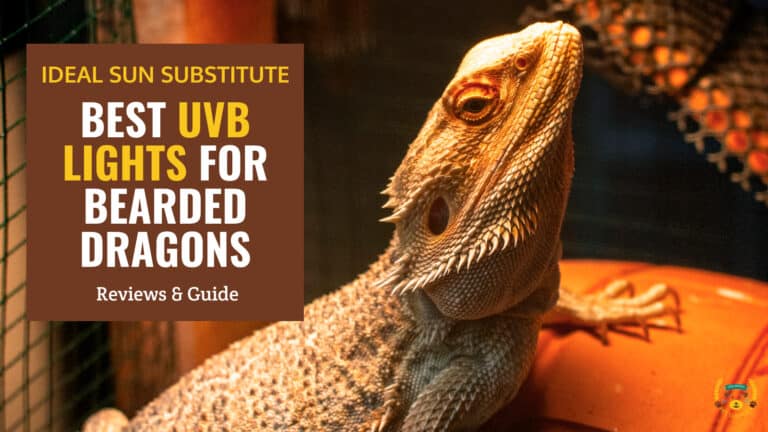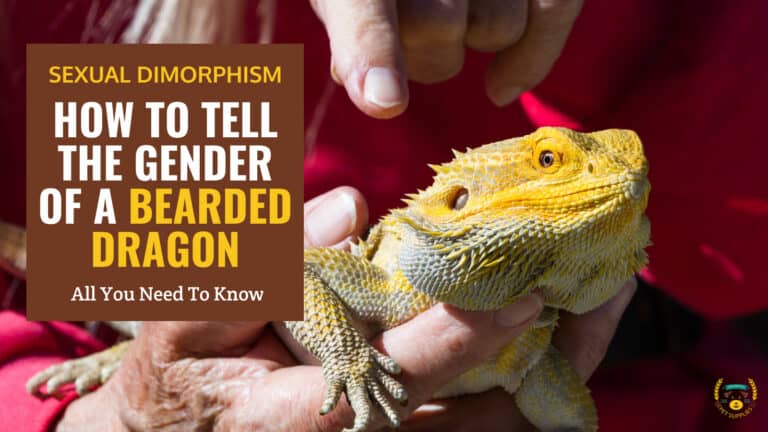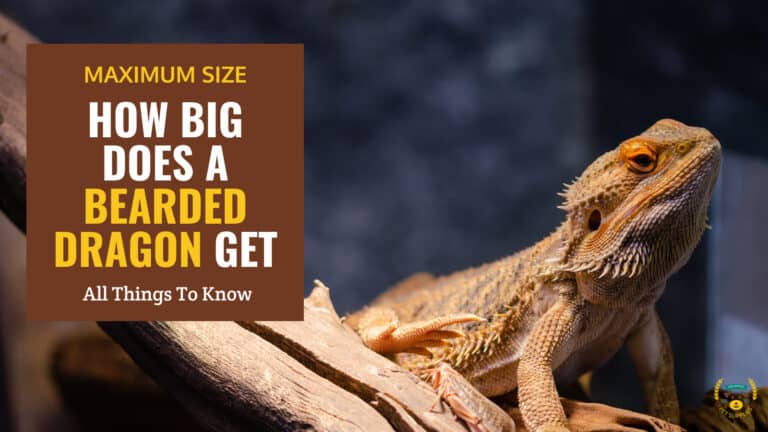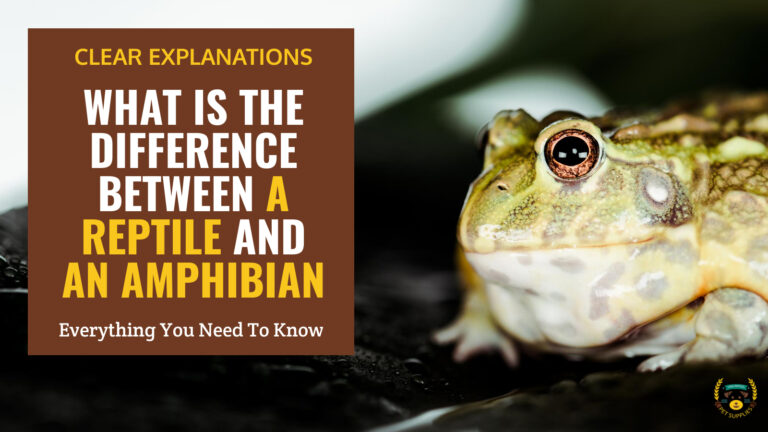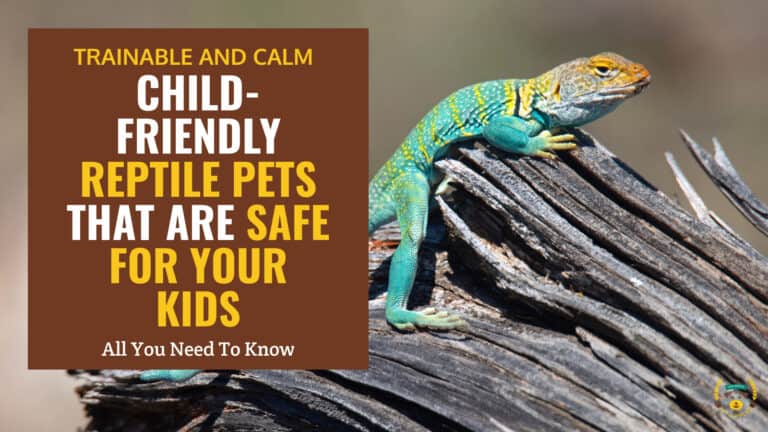Bearded Dragon Not Eating? Top 8 Reasons Why
Last updated: February 8, 2024
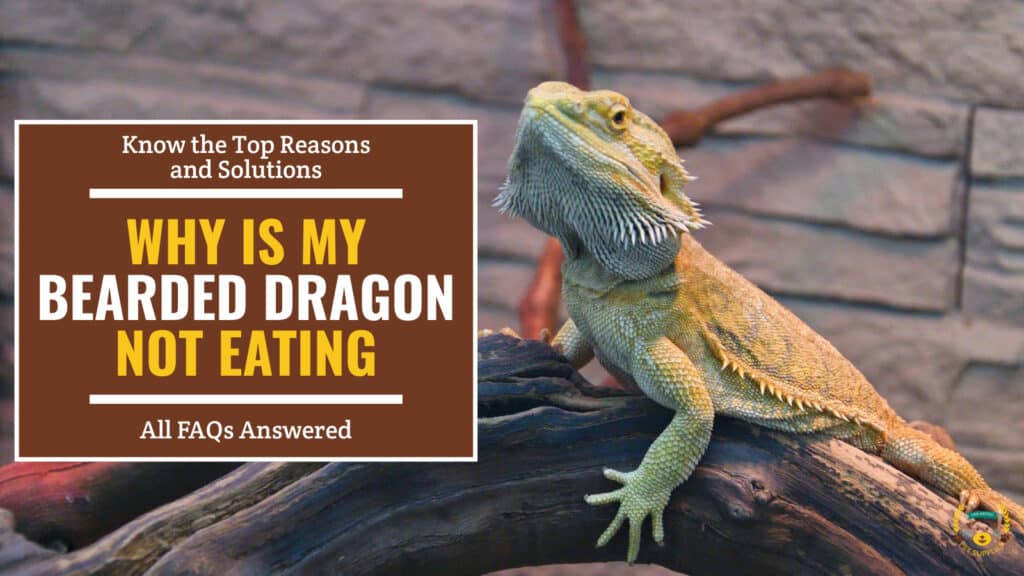
Summary
- Stress can be a major factor in a bearded dragon's loss of appetite. New surroundings, changes in routine, and other stressors can all cause a beardie to stop eating.
- Shedding can also cause a bearded dragon to lose its appetite.
- Diet can also play a role in a bearded dragon's appetite.
- Illness and injury can also cause a bearded dragon to lose its appetite.
- If your bearded dragon is new to your home, give it some time to adjust.
- Provide a variety of food. Bearded dragons need a balanced diet of insects, vegetables, and fruits.
- Make sure your beardie is getting the right nutrients. Supplement your beardie's diet with calcium and vitamin D3 powder.
Bearded dragons are a popular pet for many people, but they can be very picky eaters. They have to be fed the right food and in the correct amounts at the right time of day.
It may seem obvious to us that our pets are not going to enjoy their food, but there are many possible answers to the question: "Why won't my bearded dragon eat?". Some birdies just have an aversion to a specific diet, and some will only eat certain types of food. Others can be picky about how much they want to eat.
If you're having trouble getting your bearded dragon to eat, here are some reasons why they may not be eating and what you can do about it.
Bearded dragons have a particular diet that they need in order to thrive. If you don't feed them the right food, they won't grow properly and will end up with health problems.
There are several causes why your bearded dragon may not eat. This article will discuss some of these reasons.
-
1)
Why Is My Bearded Dragon Not Eating?
- 1.1) #1 Your Bearded Dragon Has a New Home
- 1.2) #2 Your Bearded Dragon Has a Skin Transition
- 1.3) #3 Changing the Diet to More Greens Leaving the Pests
- 1.4) #4 It's a One-Man Show
- 1.5) #5 Is It Having a Balanced Diet?
- 1.6) #6 Check Out for Any Injury
- 1.7) #7 Your Dragon Is Ailing
- 1.8) #8 It Could Just Be Brumation Period
- 2) Frequently Asked Questions:
- 3) Conclusion
Why Is My Bearded Dragon Not Eating?
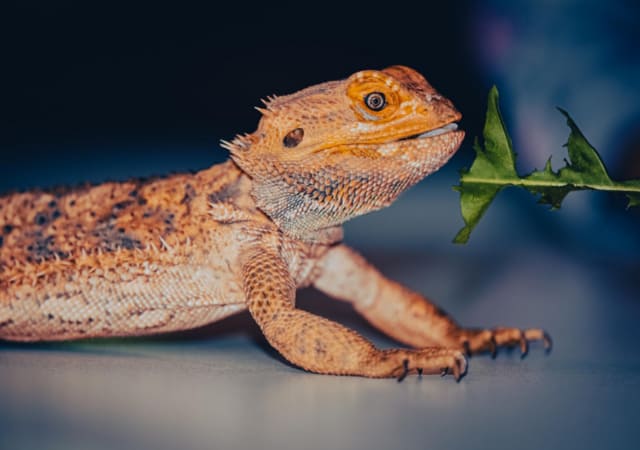
When a bearded dragon refuses to eat, it could indicate a health issue, the effect of poor diet, expected behavior, or inadequate care. The eight most frequent explanations for a beardie's food refusal are listed below. Brumation and shedding are common occurrences that can worry new owners. They occur continuously throughout a dragon's life in a natural way.
Although lighting, temperature, and diet may all be adjusted at home, it is better to have everything set up before bringing your lizard inside. The difficulties that are left might need a vet. Regardless of the cause, you should take an adult to the vet if it stops eating for longer than a week to ensure its health. After three days without food, juveniles need to see a veterinarian.
We will now go through warning indicators to watch out for, the underlying causes of each of the reasons above, and most importantly, how to encourage them to resume eating healthily. This article will help you diagnose your beardie's problem and simultaneously show you ways to overcome them easily.
#1 Your Bearded Dragon Has a New Home
It can take your freshly adopted bearded dragon a couple of weeks to consume anything. Expect your bearded dragon to generally resume eating within the first 1-2 weeks (it may take less time or a little longer, 2-4 weeks).
A baby beardie may not live that long if it is frail and hasn't eaten anything for more than 2-4 weeks. If you recently replaced the bearded dragon tank or acquired several new accessories, it will take the dragon a little time to adjust to everything again. Becoming used to the new surroundings can take 1-2 weeks.
Your dragon may not feed and hide more frequently than usual during this time. Please be patient during this period; you could even cover the tank's sides with a cloth to promote relaxation in your bearded dragon. This trick is particularly valid if the dragon is being combative.
#2 Your Bearded Dragon Has a Skin Transition
Peeling skin is uncomfortable, as anyone who has experienced a severe sunburn will attest. When bearded dragons shed, the same is valid. About twice a year, adult bearded dragons lose their skin, which might take a couple of weeks.
Because they are growing, youngsters lose skin much more frequently—up to once every two weeks. A healthy beardie can usually finish a body shed process in a day or two if the habitat's extra humidity is suitable. Your beardie could feel itchy and unpleasant while shedding, and they might eat less.
Your beardie is probably beginning to shed if you notice their poor appetite, their skin is black and dingy, and pieces of skin start to loosen and pull off. Be tolerant. Your dragon's poor diet will return to normal a week following the body shed process.
If you aren't sure if your pet is transitioning to its new skin, here's a video (4 minutes 5 seconds) showing a bearded dragon shedding its skin.
#3 Changing the Diet to More Greens Leaving the Pests
To receive the nutrition beardies require, they must consume both bugs and vegetables and modest amounts of fruit. To grow healthy, young bearded dragons need more animal protein (in the form of insects) than adults; you should feed them plants (greens, vegetables, and fruit).
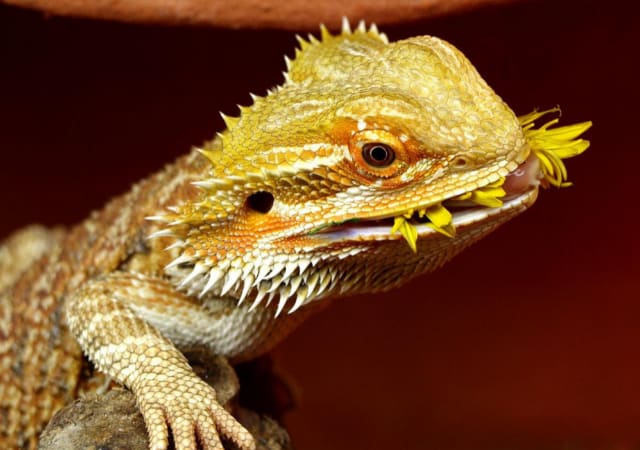
A nutritional imbalance (the appropriate ratio of calcium to phosphorus in a bearded dragon's diet is 2:1) is giving an adult beardie or juvenile bearded dragon too many bugs or vegetables which ultimately makes them uninterested in food.
In addition, while it may be enticing to give your bearded monster a bit of everything, there are several things that beardies absolutely should not consume. For instance, fireflies are poisonous to bearded dragons. Therefore, beardies must never be given fireflies in the name of a varied diet.
Also, avoid vegetables in the onion family, such as chives, leeks, garlic, and onions. Celery and iceberg lettuce shouldn't be served because they are just water and provide no nutrition. Oxalic acid, found in avocados, beet greens, spinach, and rhubarb, binds up calcium.
#4 It's a One-Man Show
Aggression and other caged mates are two factors that contribute to distressing hunger. It's not a good idea at all to house your bearded .dragons together, despite the habit of some beardie owners. Solitary lizards known as bearded dragons are fierce competitors for food, sunbathing areas, hiding places, etc.
As a result, a bearded dragon could take an improper diet because there will be a dominant and a subordinate bearded dragon (alpha and beta). A passive dragon will move slowly and won't try to acquire what it needs.
Even in perfect living conditions, bearded dragons might dislike one another if two or more of them are together.
#5 Is It Having a Balanced Diet?
You might have a malnourished pet on your hands if your bearded dragon appears out of sorts, has little energy, and is on the thin side.
A wide variety of healthy foods are a terrific method to maintain your bearded dragon's nutrition balance. Offer your dragon a cornucopia of nutrients, mainly if they are young and still developing.
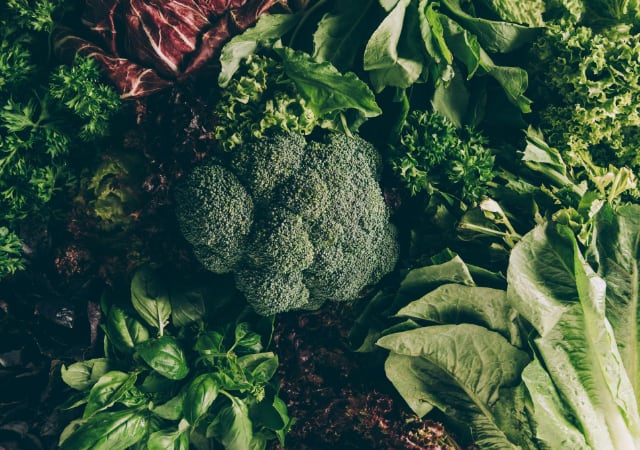
Fruits and vegetables, especially leafy greens, are the best. Still, you may also treat them to certain seasonal fruits and vegetables in moderation and feeder insects, such as Dubai roaches and superworms.
Increase the number of feeding sessions - If your dragon loses weight, you may wish to feed them more frequently than usual. Give them as much time as they need to eat for 10 minutes, 2–5 times daily.
Make sure your beardie is getting the right nutrients. Supplement your beardie's diet with calcium and vitamin D3 powder.
#6 Check Out for Any Injury
Bearded dragons are not impervious to injuries like fractured bones, which can be brought on by mishaps, improper handling, or bullying/fighting by other pet lizards in the same cage.
It may be prudent to schedule a checkup with the vet to ensure your dragon is not hurt if you discover it has an appetite loss and a swelling in one of its body parts, especially if it is still an infant because its bones are more fragile.
#7 Your Dragon Is Ailing
A bearded dragon can cease eating due to several ailments, as you would have anticipated. Inexperienced owners typically point to this as the first possible explanation when they become anxious about their pet's state.
Infections and parasites are typically the most prevalent diseases that might affect these reptiles out of a vast range of possible ailments.
Bone Disease
Beardies need a heat source for healthy digestion. Low habitat temperature and extra humidity can result in respiratory infection. At the same time, inadequate lighting equipment can also result in nutritional deficiencies (such as calcium), resulting in metabolic bone disease.
Parasites Attack
Your bearded dragon may experience an appetite loss due to parasites stealing nutrients from their digestive systems (parasitic infections). It is preferable to get live feed from trustworthy breeders because insects and other creatures from the wild may include common parasites, poisons, or other dangerous chemicals that are not yet known.
Weak Immune System
Low temperatures frequently might cause more severe diseases, including difficulty digesting food. In addition, you should take your dragon to the vet if it is wheezing or has discharge from its nose or mouth since it may have a respiratory infection.
Impaction
If your beardie has a sudden disinterest in food, it could be due to impaction. It occurs in reptiles, especially those living in closed tanks with the wrong substrates. Your pet may ingest the wrong item and cause a problematic intestinal tract.
This state of impaction is uncomfortable and is one of the reasons behind your bearded dragon not eating.
Here's an informative video (11 minutes 31 seconds) that talks about 5 signs that your bearded dragon might be sick.
#8 It Could Just Be Brumation Period
The brumation process is a behavior that bearded dragons engage in when they are not actively feeding. Lizards enter a state known as brumation, more like a period of dormancy, during the cold months of the year.
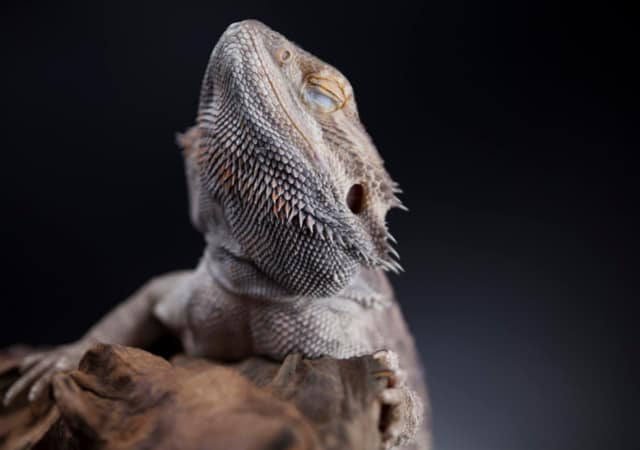
Many of a bearded dragon's essential physiological processes will slow down when it enters the brumation period. In addition to eating far less food, they won't be moving around nearly as much, so they don't require this fuel.
Frequently Asked Questions:
The above article does contain many possible reasons to take care of the appetite of your beardie but still, we have put ourselves in your shoes and answered these frequently asked questions:
Do Bearded Dragons Go Through Periods of Not Eating Naturally?
A bearded dragon may occasionally stop feeding if a natural process is taking place in it. Although you should still take this carefully, this is only designed to show that it might not be a catastrophic event.
When Should You Go To The Vet?
A bearded dragon needs a vet visit several times. First, the vet should observe the new bearded dragons within the first week of ownership. Then, to check for parasites and to assess general health, yearly checkups are required.
Should I Force-Feed My Bearded Dragon?
If a force-fed dragon is constipated, under stress, sad, or otherwise ailing, they frequently develop anorexia. Therefore, it could be necessary for you to force-feed your dragon until it receives treatment and can resume a regular basis feeding schedule if your pet starts to exhibit signs of malnourishment or dehydration.
How Big Should a Tank Be to Keep More Than One Beardie?
A tank of at least 130 gallons is required, along with distinct hiding spots, dining areas, and basking areas. The risks involved in housing two or more bearded dragons around make it unwise.
Conclusion
Your bearded dragon may not be eating for various reasons, which are trivial and straightforward to fix. Just keep an eye out for the things mentioned above and keep a close eye on your bearded dragon, especially if it starts to lose too much weight or displays indications of malnutrition.
However, as a responsible bearded dragon owner, it is your responsibility to take your dragon to a vet (trained veterinarian) with expertise in the treatment of reptiles. If the problem doesn't go away on its own and your dragon exhibits symptoms of malnourishment, disease, or injury.
The same holds for most issues in life: the earlier they are identified, the more likely they are to be treated or resolved.
With appropriate attention, your bearded dragon can have a lifespan of 8 to 15 years.
In any case, we hope this post will provide a helpful troubleshooting approach to help you figure out why your cherished bearded dragon isn't eating.

